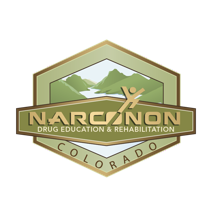How to Support a Friend Who Just Got Out of Rehab

When a person finishes up addiction treatment they can have a difficult time readjusting to their new life. Many people mistakenly believe that all of the work happens during time spent in rehab. While there is a lot of self-reflection and growth that occurs during the addiction treatment process this is only the very beginning of starting a life of recovery. A lot of the work that needs to be done will begin once a person has been discharged from the treatment center that they attended.
If you have a friend who is currently in rehab or has recently completed addiction treatment here are some ways that you can help support them as they make the transition back into life.
Understand that it may be difficult.
Your friend will probably experience a lot of emotional ups and downs as they adjust to a life of sobriety. Do what you can to be there for them while still maintaining your own boundaries. Basically, just try to be understanding and empathetic.
Don’t drink or use around them.
This should be a given, but some people need a reminder. The first year of sobriety is usually the most challenging, being around people who are drinking makes it even worse. Even if your friend says they don’t mind if you drink around them, don’t do it. Chances are they are just saying that because they don’t want to make you feel uncomfortable or feel like a burden. If you really care about your friend, then respect their sobriety and avoid drinking around them without making it seem like a big deal to you. If you are unable to do this, then it might be a good idea to examine your own relationship with alcohol.
Invite them to get-togethers but don’t invite them to bars.
One of the worst places for someone to go when they are new to recovery is a bar. There is too much temptation, and honestly, it is really uncomfortable. If you want to watch a game and still include your friend, maybe try doing so in a different setting that doesn’t revolve around drinking. It is also important to still invite your friend to other social get-togethers as well. A person in recovery may feel like an outcast at times, and not being invited to things makes this feeling even worse.
Understand that they need to enforce new boundaries.
One of the most essential aspects of living a sober lifestyle is learning how to establish and maintain healthy boundaries. Your friend may ask that you no longer drink around them, please respect this. They may say no thank you to going out to parties with you, don’t take this personally. Understand that setting boundaries can be a difficult process, sometimes just asking what they need from you can make the whole situation a lot less difficult.
Be encouraging.
Life after treatment can be discouraging at times in a culture that glorifies drug and alcohol use. It can be hard to see alcohol advertisements and movies that make drug use seem fun. Try to be as encouraging as you can for your friend and remind them that they are doing what is best for their own particular situation.
Do your best not to make it awkward.
Sometimes it can be hard to be around people when recovering from addiction. There is the fear of judgment and sometimes embarrassment. As much as you are able to, try not to make it awkward for your friend. If they want to talk about it, by all means, be there for them, but otherwise, don’t keep bringing it up. Understand that your friend is still the same person you knew before, they are just working on bettering themselves.
While each individual is ultimately responsible for their own thoughts and actions, there are things we can all do to be good friends to one another. If you have a friend who is new to the sobriety thing doing what you can to support them is simply a matter of being a good friend.


